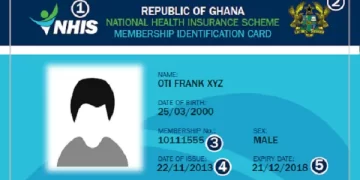Traveling, playing games, or streaming? Perhaps you should get a VPN. Our knowledgeable testing staff has spent hundreds of hours analyzing these best VPNs for privacy, speed, and other factors out of dozens of services.
What is the best VPN in 2025?
ExpressVPN emerged victorious in a close three-way contest for CNET’s Editors’ Choice Award for best VPN overall. Because of its privacy and ease of use, ExpressVPN outperformed respectable competitors SurfShark and NordVPN, earning an 8.8/10 rating and being the best of the best. One of the primary reasons people use VPN services is anonymity, and ExpressVPN satisfies this need with unparalleled openness, including its Trusted Server technology and privacy policy. When it comes protecting your surfing data, Trusted Server technology offers greater peace of mind than standard RAM-only server infrastructure.
ExpressVPN’s Lightway protocol, which offers future-proof post-quantum protection by seamlessly fusing performance and security, contributes to its consistently fast speeds. It is easy to use ExpressVPN’s service, which consistently unblocks streaming media and provides practical security features with its Advanced Protection suite. ExpressVPN provides apps for almost every platform you can imagine, including Microsoft Copilot Plus PCs. ExpressVPN is user-friendly and accessible, whatever of your level of experience with virtual private networks. Additionally, it’s our top pick for streaming NFL games that aren’t available in your area.
For those looking for privacy features on a budget, Surfshark is a fantastic option. Although its annual rate is significantly lower ($48 for the first year or $60 for the first two years, then $60 a year after the promotional period for both the one- and two-year plans), it still offers connection speeds and features that are comparable to those of ExpressVPN and NordVPN. Surfshark is a fantastic choice for folks with big families or simply a lot of linked gadgets because it supports an infinite number of devices at once. Additionally, there is a Linux GUI program for ease of use on Linux and an Apple TV app for effortless streaming in the living room.For those with important privacy requirements, Surfshark is less suitable because it doesn’t quite match ExpressVPN’s dedication to privacy.
NordVPN is a great VPN with lots of features. The quickest connection speeds we tested were from NordVPN; CNET Labs recorded the best-in-class average loss of 11.1% in internet download speed. In addition to more conventional capabilities like split tunneling, which allows you to choose which online activities require VPN security, it provides a plethora of sophisticated privacy advantages, such as a double VPN, Onion Over VPN for further encryption, and Meshnet for safe file sharing. All of those features are wonderful additions for power users, but most people won’t need them. In order to strengthen security against dangers posed by quantum computing, such as cracking encryption, Nord has already started implementing post-quantum protection for its apps, beginning with its Linux app.Almost every platform is supported by Nord, including specialized gadgets like ARM-based Windows PCs and Apple TVs. All things considered, NordVPN provides a top-notch service with great features for anyone seeking cutting-edge privacy security and exceptional streaming capabilities.
We identify the best user for each VPN service we suggest, and each one offers outstanding value for a particular use case. Regardless of how serious your privacy needs are, there is a VPN service that will meet them thanks to the wide range of solutions accessible. Additionally, take advantage of one of the greatest VPN offers that are currently available, which several of our top choices are providing.
Factors to consider in a VPN
You must choose the virtual private network (VPN) that best suits your requirements and price range. What to look for is as follows.
Internet speed loss
By passing your traffic through an encrypted server before connecting to apps, websites, and other internet services, a virtual private network (VPN) considerably reduces your internet speed. The average download speed loss of the fastest VPNs is 25% or less. In general, a slight 25% or under dip won’t be noticeable even by those with slower connections, such as satellite internet. A VPN with little speed loss is ideal for bandwidth-intensive applications like gaming, streaming 4K video, and uploading big files. We aim for VPNs that keep speed loss below 50%, however casual users with faster internet speeds should be okay with more than 25% speed loss.
In our 2024 testing, NordVPN came out on top with an impressively low 11% average internet speed loss. Mullvad, Surfshark, Proton VPN and ExpressVPN all clocked an average internet download speed loss of 25% or less.
Privacy
VPNs bolster your privacy by masking your public IP address, which — like your physical address — contains identifying information about your geographical location. But the best VPNs provide robust privacy protections. At a minimum, we recommend a VPN with 256-bit encryption (for OpenVPN and IKEv2 VPN protocols) or ChaCha20 (with WireGuard), a strict no-logging policy and DNS leak protection. Because logging is tough to verify, look for regular third-party audits. You can and should be skeptical of your VPN provider’s zero-log claims. Still, VPN audits are important even if they don’t provide the full privacy picture.
Transparency reports also provide reassurance. Additionally, we advise staying with a VPN that has a kill switch, which turns off your internet in the event that your VPN disconnects unexpectedly. Split tunneling, which allows you to utilize a VPN for some apps and websites but not others, might be what you’re looking for if you want more control over your VPN connection. To get around CAPTCHAs while login into your email, for example, you can utilize split tunneling to route your Netflix app through a VPN and unblock international content libraries, while leaving out your Google Chrome browser.
Advanced features like obfuscation (which makes it harder for ISPs to figure out that you’re using a VPN), Tor over VPN (for additional encryption using the Tor network), and a double VPN (which depends on a second VPN server connection to enhance encryption) will be appreciated by more privacy-conscious users, such as political activists or investigative journalists. For even more peace of mind, people with important privacy requirements should think about using a VPN service whose country is not part of the Five, Nine, or Fourteen Eyes intelligence-sharing organizations. You might wish to do a VPN test, whether you’re just wondering or you think your VPN isn’t functioning.
Server network
Examine both the total number of servers and the locations of each nation when thinking about VPN server networks. You have fewer foreign options if, for example, a virtual private network provider has twice as many servers as a rival but only half as many distinct country locations. The best VPNs for travel offer more than 90 countries at the top end, but many people will be able to use any country with more than 60.
While some VPNs offer dedicated P2P (peer-to-peer) features, others let file sharing across all servers when users are not in the same country. Make sure your preferred service allows file sharing on all servers or just a few for uses like torrenting.
Specialty servers, such as Tor (The Onion Router) over VPN, Double VPN, or obfuscated servers, are also occasionally encountered. When compared to a regular VPN connection, Onion over VPN and Double VPN servers offer even more anonymity by strengthening your encryption. Tor uses the Onion network, whereas a double VPN depends on a second VPN tunnel. Conversely, obfuscated servers make it more difficult for websites, apps, and ISPs to figure out that you’re using a VPN.
Device support
Consider the devices you want to use to host a VPN. The majority of VPN providers provide web browsers, Android/Android TV, iOS/iPadOS, Windows, MacOS, and Linux apps. With TVOS apps from ExpressVPN, Surfshark, Proton VPN, PIA, NordVPN, PrivadoVPN, and IPVanish, Apple TV apps are becoming more and more popular. For Linux users, a graphical user interface program could be more convenient than a command line interface. With their Linux GUI applications, Surfshark, Proton, and PIA are attractive options for Linux VPNs. Some VPNs, such as NordVPN, Surfshark, Proton VPN, ExpressVPN, and PIA, support Windows for ARM.Although doing so usually voids the router’s warranty, you can usually install a VPN on your router for whole-home coverage and use it on devices like Xbox consoles that don’t support native VPN apps.
The majority of VPN providers allow you to install their apps on as many devices as you like, while there are instances where you can only use them on one device at a time. NordVPN and Proton give you ten, while ExpressVPN lets you have eight. IPVanish, PIA, and Surfshark are all limitless. You can install a VPN on as many devices as you like, even with a provider like Express, Proton, or Nord, but you will only be able to have a few active sessions at once. Families or heavy users may feel limited, but most people should be okay with eight or ten connections at once. Consider one of the top VPNs for multiple devices, such as Surfshark or NordVPN, if you want to set up a VPN on a lot of devices.
Streaming capabilities
For privacy, VPNs can be quite beneficial. Additionally, they are useful for unblocking entertainment content that is limited by area. When traveling overseas, a VPN enables you to view services like Peacock (for NFL games), Max, or Hulu from your home country. On the other hand, VPNs also make it possible to access international libraries on websites like Amazon Prime Video (which now offers Cross), Disney Plus (which allows you to watch Moana indefinitely), and Netflix (which allows you to watch Squid Game). Using a VPN for streaming could possibly result in cost savings. See the top VPNs for streaming and the top VPNs for Amazon Prime Video for additional information.
Cost
You can purchase a monthly, bi-annual, annual, or multi-year VPN subscription with the majority of VPNs. We usually advise staying with an annual plan for the best savings with the lowest risk, even though multi-year deals usually provide you the biggest savings. In the beginning, the virtual private network you join might be quick, secure, and excellent for geo-unblocking; however, after a year, it might slow down, experience a data breach, or cease to permit access to foreign Netflix libraries.
ICYMT: ECG Audit uncovers GH₵490M revenue collection shortfall
While value-packed companies like Surfshark and PIA offer year-round rates from $40 to $60, high-end VPNs like Express cost about $100. Some businesses raise prices: Typically, NordVPN costs $60 for the first year and $140 for the subsequent 12 months. In a similar vein, Surfshark charges $48 up front and then $60 yearly after that. Establish a spending limit and then, keeping price increases in mind, choose a VPN service that meets your needs. Notably, by utilizing seasonal discounts like Black Friday/Cyber Monday offers, you can renew without incurring higher renewal fees. Consider one of the top low-cost VPNs, such as Mullvad, PIA, or Surfshark, if you’re on a tight budget.
Additional VPN factors to consider when selecting the best VPN for your needs and budget
Avoid using free VPN services: We only suggest paying VPN services on this list, with the exception of Proton, which is the greatest free VPN available.
The finest VPNs retain as little logs as possible and make them as anonymous as possible, so there isn’t much information to share if authorities come knocking. Look for a no-logs VPN, but be aware of the warnings. VPNs with “no-logs” aren’t completely anonymous either.
The privacy that VPNs now offer iOS users is limited: Regardless of the VPN that is being utilized, recent independent research has revealed that iPhones and iPads running iOS 14 or later may be susceptible to device-only VPN breaches. Apple owners who are worried about possible leaks can take further security measures by securing their entire Wi-Fi network with a VPN installed on a home router. By turning on their VPN’s kill switch and choosing OpenVPN protocols, some iOS users may be able to lessen the possibility of leaks when they are not connected to their home network.Before using your device normally, you can also try shutting down all apps, turning on your VPN, and then turning on and off Airplane Mode. For extra security, Apple suggests that customers turn on their device’s Always On VPN profile.
Although VPN transparency is crucial, warrant canaries are just the first step: “Warrant canaries” are used by several services to subtly inform the public if they have been subpoenaed by a government agency. This is due to the fact that many national security agency investigations are prohibited by law from being actively published. Warrant canaries aren’t always as simple as they look, much like the no-logging problem. You should devote more effort in learning whether your potential VPN has previously cooperated with law enforcement, as well as how and when it revealed this information.
Reconsider utilizing a VPN situated in the United States: US-based VPNs have few options if and when the federal government shows up with subpoenas or national security letters requesting access to servers, VPN user accounts, or other data because the Patriot Act is still the law of the land in the US. Yes, if the service has a strict no-logs policy, they might not have much data to access, but why not just pick a provider that is located outside Uncle Sam’s purview? (You should also stay away from nations with which the US has intelligence-sharing agreements if this worries you.)



























